Although many individuals want to cultivate fresh herbs, not everyone has a yard or enough room for an outdoor herb garden. The good news is that even in limited spaces, Plant Judo’s plant pots make it simple to cultivate herbs at home.
Fresh herbs can be grown in the home garden by making a container herb garden. Additionally, numerous pots will add colour and variety to the garden’s environment.
You can relocate herbs growing in pots to different locations in your garden or closer to your kitchen as needed. Depending on which herbs are in bloom, you can alter the layout according to the season and designate critical areas in your garden.
Most of the herbs are suitable for pot gardening. However, before choosing the pot for your potted herb garden, you should look into the growing requirements of the particular herb you choose to add.
Our experts at Plant Judo can help you with your doubts and clarify them.
Contact us to learn about various plant pots and how they make a good choice for your herbs.

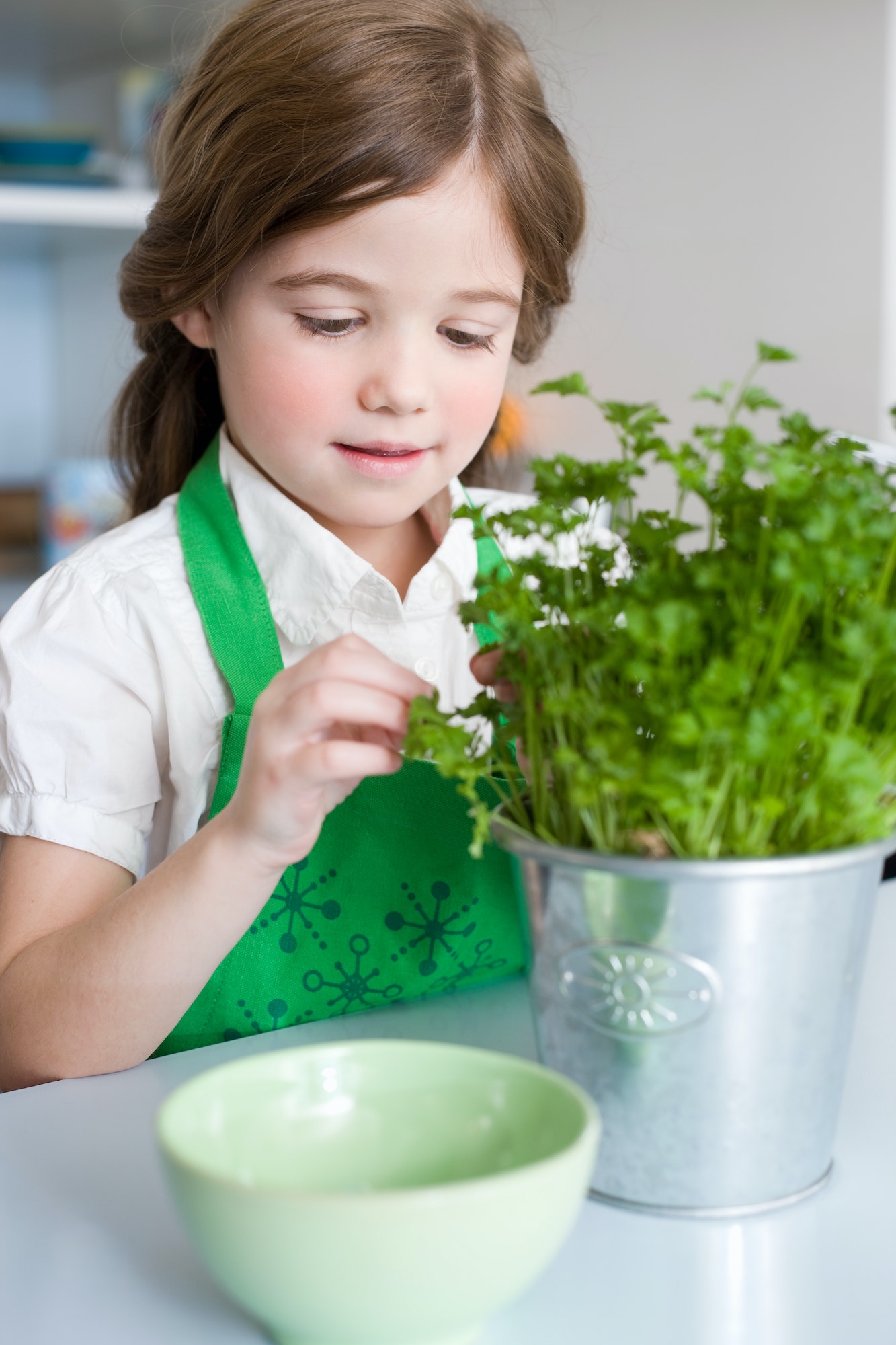
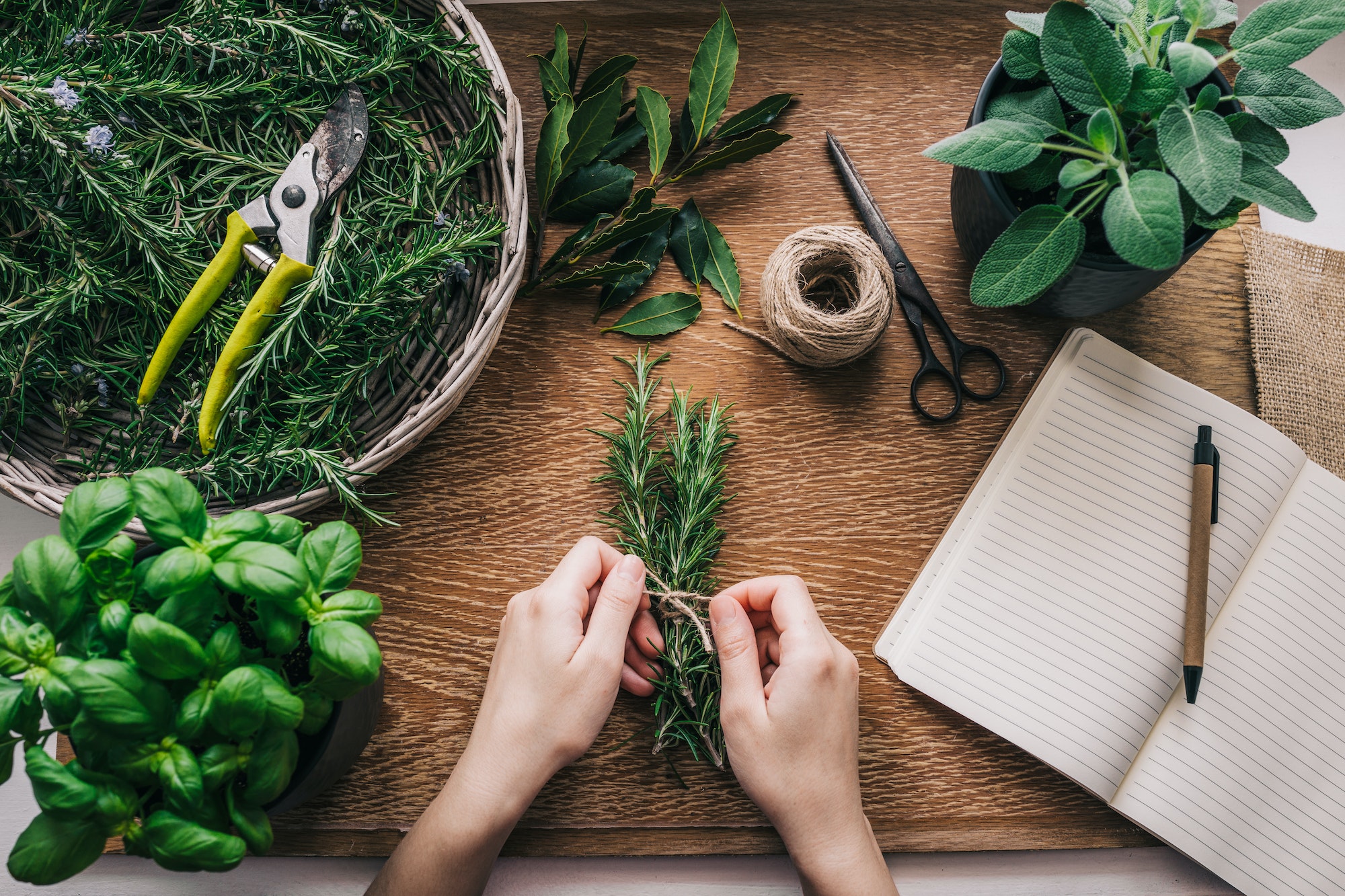
The available space and whether you intend to keep your herbs indoors or outdoors play a significant role in your chosen plant pots. You can use almost any pot to produce herbs as long as it has excellent drainage.
If you are not using a conventional pot, drill some drainage holes in the bottom and offer a drip plate if you keep the plants indoors.
Ceramics, terra cotta, plastic, various metals, and resin are common materials used for growth containers. While aesthetics are crucial, each herb container material has benefits and drawbacks that you should consider based on your area and growing plant.
Before selecting herb and plant pots for them, we recommend you get a consultation from our experts. At Plant Judo, we have ceramic pots with glazes with the most comprehensive range of shapes and colours, making them excellent choices for interior design accents.
These are the ideal option for someone who wishes to complement a colour scheme in their home, and ceramic works for various herbs.
However, big containers might not be appropriate for balconies because they are heavy.
Traditional, lovely, and reasonably priced terra cotta pots are available at the Plant Judo store. In these pots, soil dries very fast due to the excellent airflow provided by the sidewalls’ porous construction.
Because of this, herbs like lemon balm or lavender that favour drier conditions do well in clay pots.
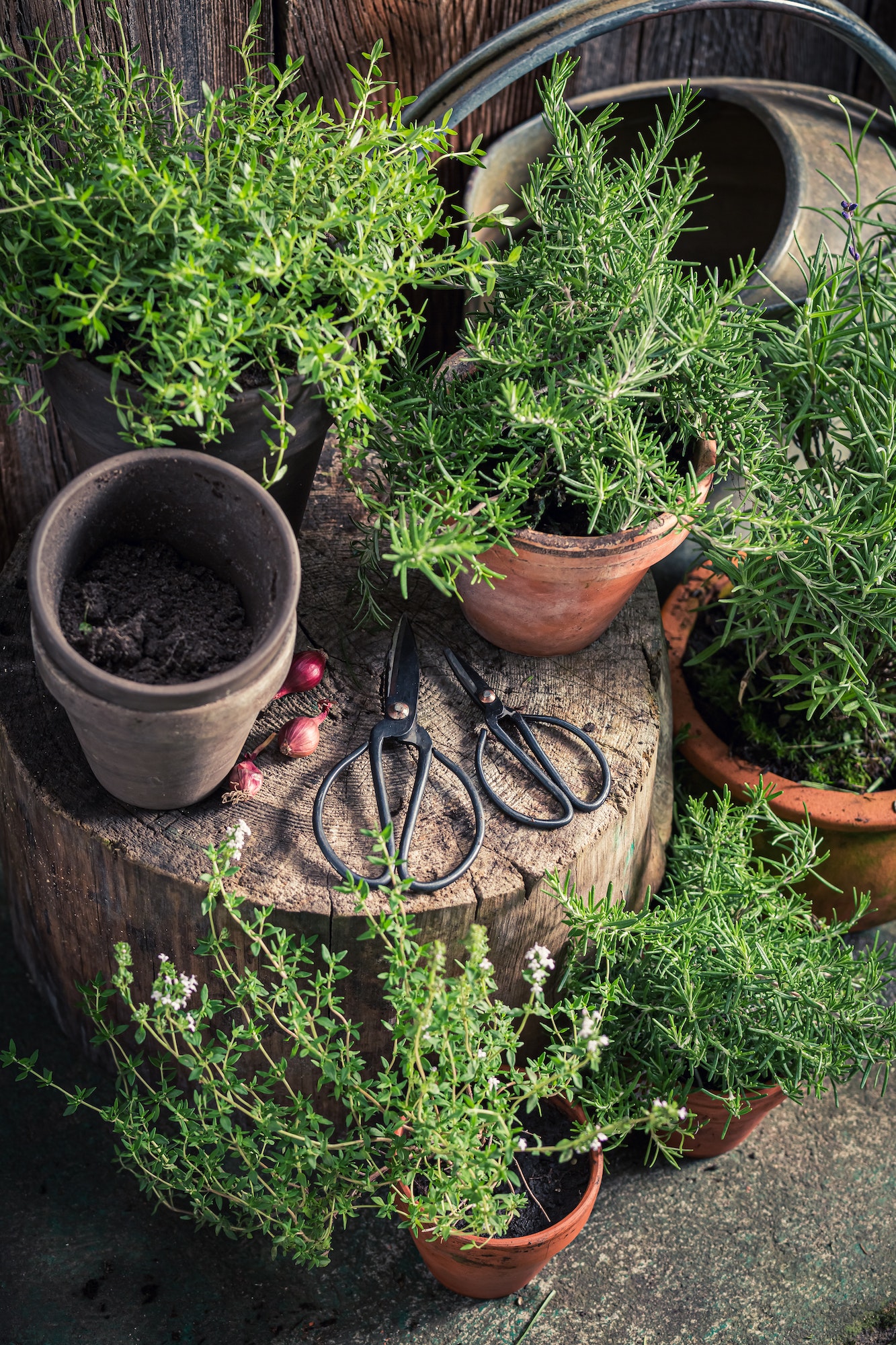
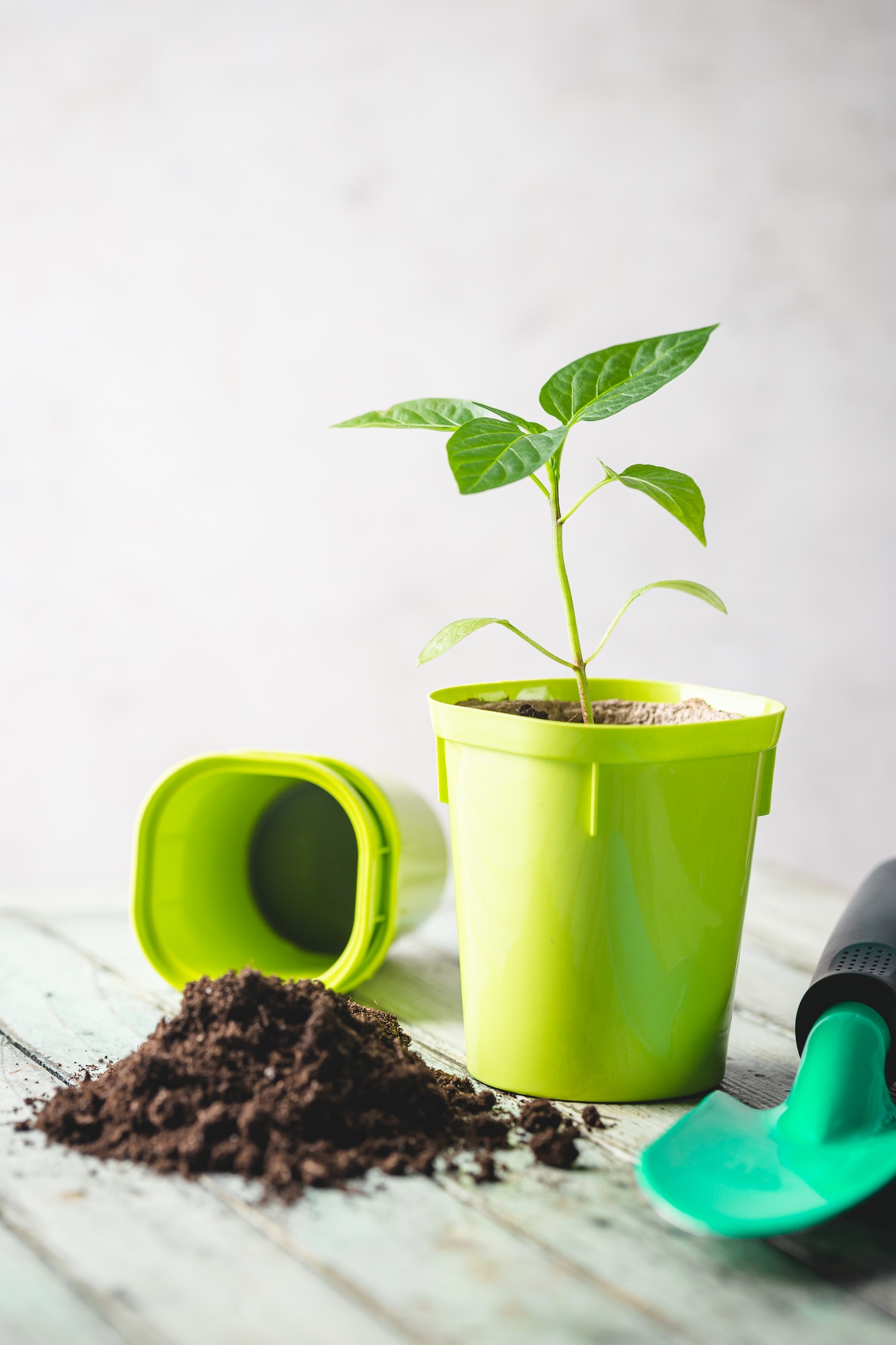
We have plastic pots that are affordable, lightweight, and in a variety of colours. The non-porous material reduces air exchange, prolonging the time that the potting soil is moist. Such pots are excellent for herbs like rosemary and cilantro that prefer damp soil.
But over time, exposure to sunshine and temperature changes will impact outdoor containers, weakening the plastic or causing damage. Therefore, use plastic plant pots indoors instead of placing them outdoors.
Metal pots at Plant Judo, available in the options of copper, brass, galvanised steel, or stainless steel, are aesthetically pleasing and long-lasting despite their high price. However, as metal containers frequently lack drainage holes, you should exercise caution.
The metal can get extremely hot when used outside or in direct sunshine, which might harm the roots by elevating the soil’s temperature. Hence they are suitable indoors.
Resin pots at Plant Judo are made from wood raisins, which are lightweight, weatherproof, and offered in various finishes. They are helpful for plants that you switch between indoor and outdoor care on a seasonal basis.
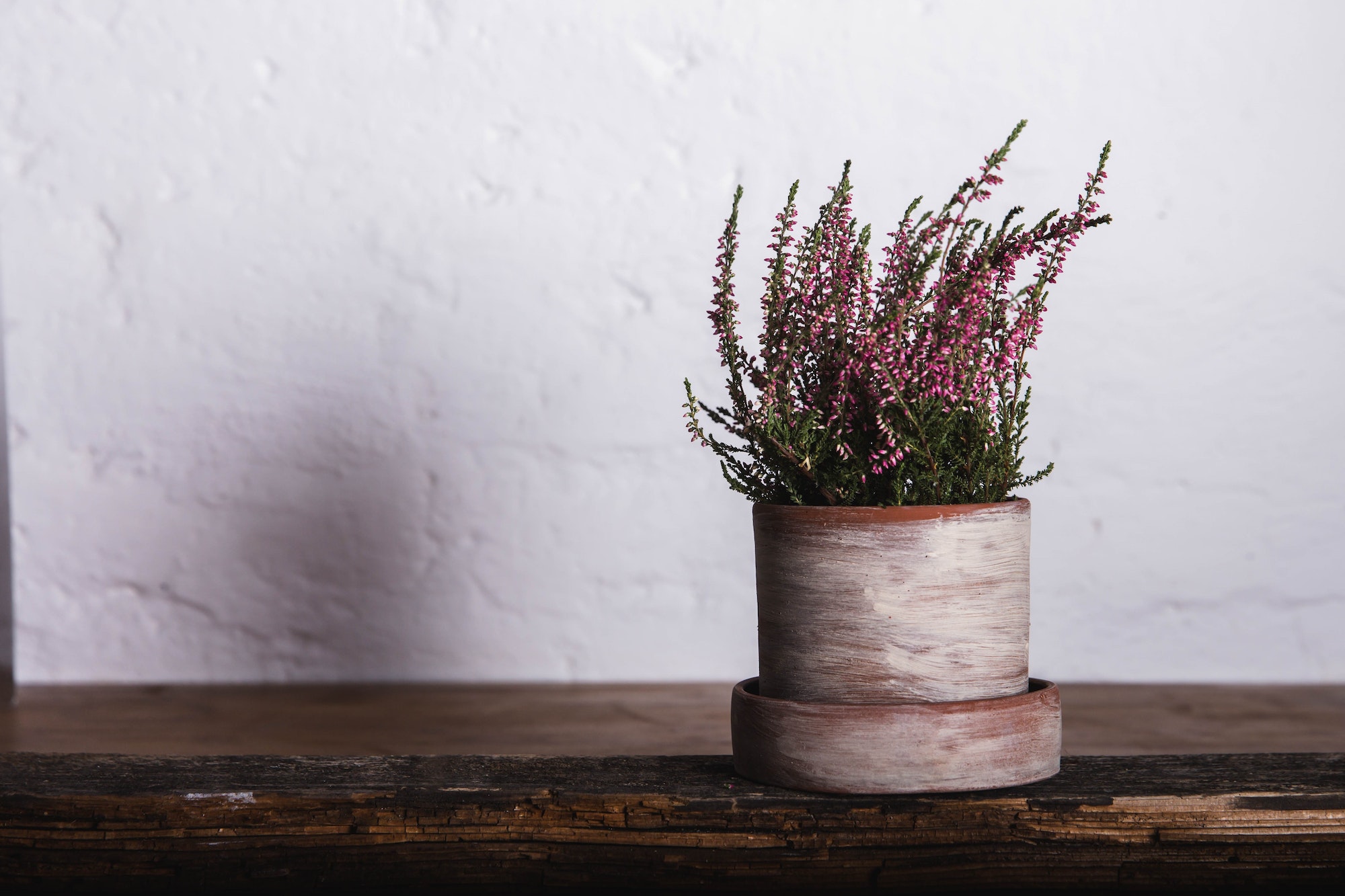
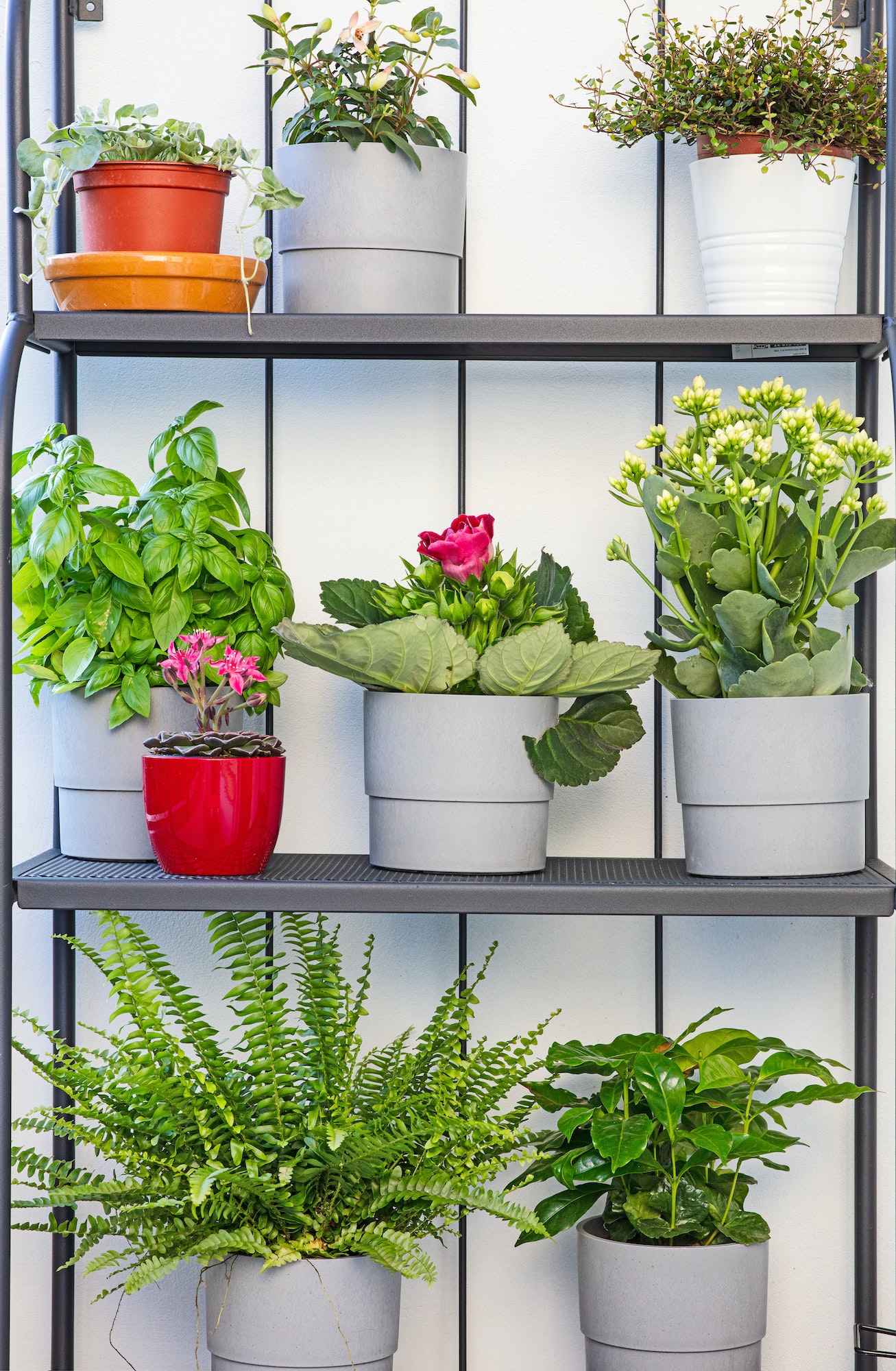
Your choice of pot size will affect the overall size of the herb plant.
Choose a pot that will fit the mature size of the plants if you want your potted herbs to grow to their most significant potential.
Here are a few fundamental suggestions to consider while preparing your small herb garden.
At Plant Judo, we have pots with drainage holes in the bottom to allow extra water to flow out of the potting soil. If you discover a container that works well for growing herbs but lacks drainage, you can make drainage holes at the bottom using a drill bit. If you are working with ceramic or terracotta pots, use a masonry bit. Usually, one to three holes are enough to provide drainage.
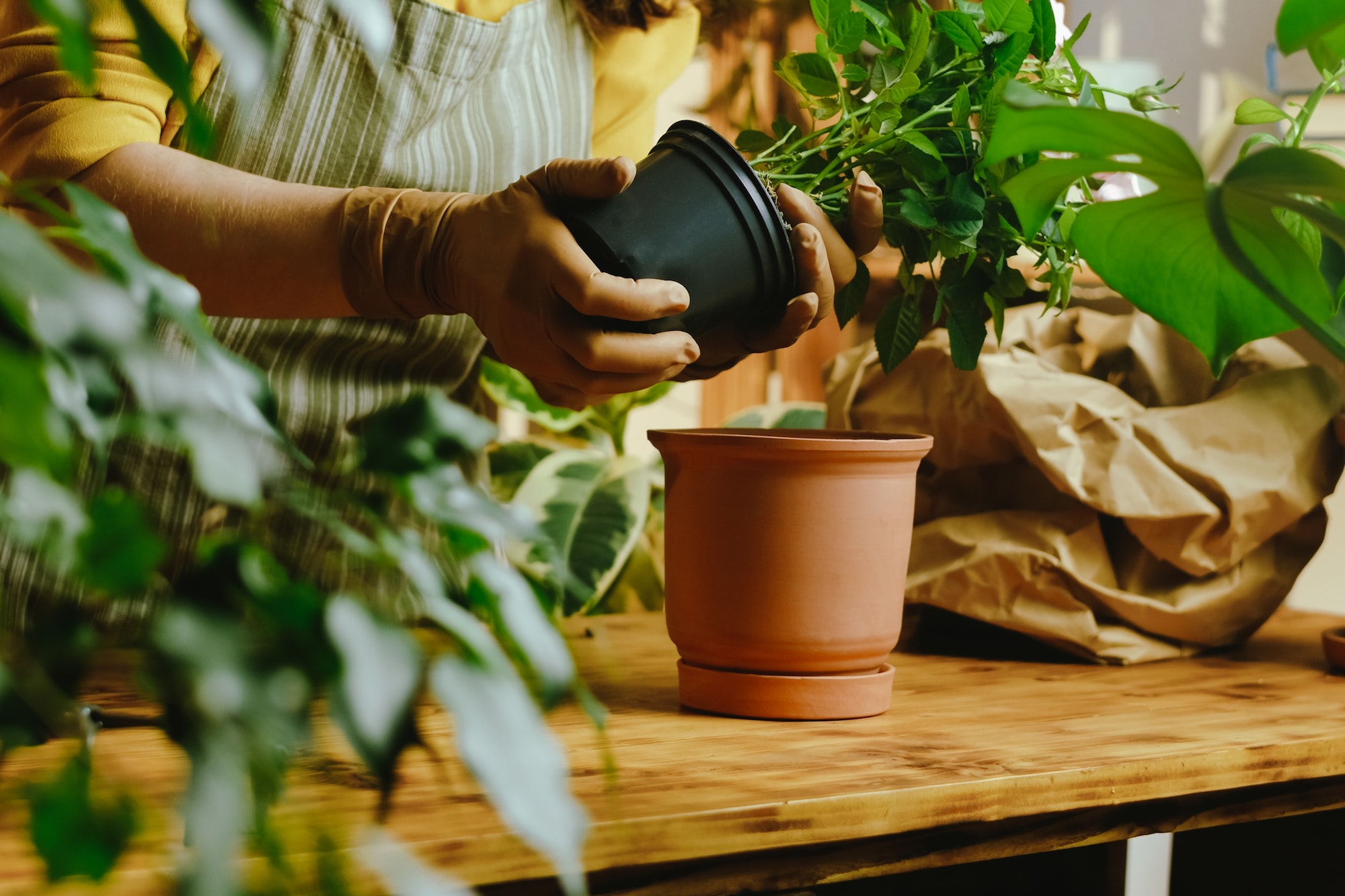
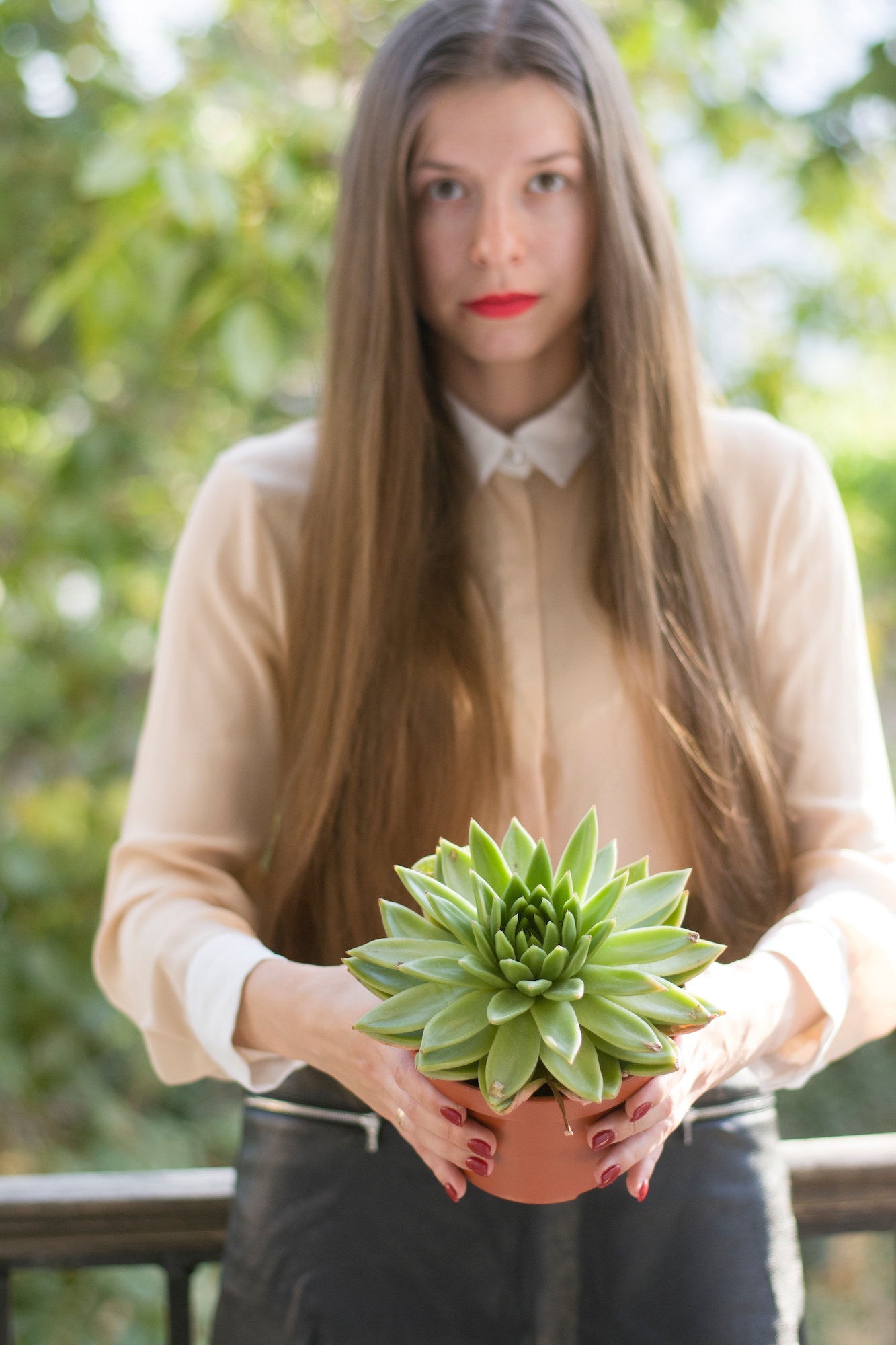
It will be simpler to move your most delicate herbs inside during the winter if you keep them in pots outside in the garden, and doing so will also make your garden look more exciting and lovely while it’s in bloom.
To give your garden more definition, centre herbs growing in pots, like your creeping thyme, among your lower-growing plants.
Learn a gratifying and enjoyable method with Plant Judo to ensure that you have lots of the good stuff available precisely when you need it, which is to grow herbs in containers.
Contact our experts today.

Herbs are often grown in containers for a variety of reasons. It could be that you lack room, your soil is poor, you want to extend the growing season, you want to keep the herbs nearby for use in the kitchen, you want to keep invasive herbs at bay, or you live in an apartment and enjoy fresh herbs but don’t have a yard in which to grow them.
Whatever your motivations, most herbs are suitable for growing in pots and may be found anywhere as long as they have access to enough sunlight, water, and healthy soil.
For instance, lavender prefers arid soil between waterings, while basil prefers more water; therefore, do not grow these two herbs together.
For most herbs, it’s a good idea to water once a week. There may be instances when twice weekly is required, especially during periods of excessive heat or drought
No.
Too much water may cause container plants to lose their foliage, develop rotten roots and tubers, or develop pest or mould problems. All of these put the plant under stress and jeopardised its well-being. Too much moisture in a pot might cause the crown or base to rot.

Copyright © 2024 Plant Judo. All Rights Reserved
Kemp House, 152 – 160 City Road,
London, EC1V 2NX
United Kingdom